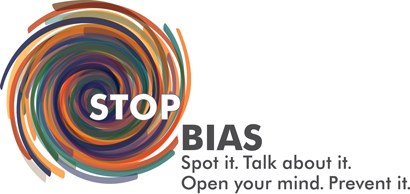We all think that we are fair and objective. But the truth is we are governed by our biases and we as humans are inherently biased. The only difference is some people are biased consciously whereas some are subconsciously biased.
There is an unconscious instinct for us all to favour those who remind us of ourselves. This phenomenon is known as “MINI ME Syndrome”. Many a times it is seen that the manager or the recruiter during the recruitment process selects and hires an employee who are similar to themselves. But, in the corporate world would this inclination of leaders to recruit mini – me’s going to help the organization? The answer is “NO”.
Let’s see some other Bias that could hinder selecting the right candidate during the selection process:
- Status Bias: We treat and behave with some people differently based on how “important” we perceive the status to be. Eg: The tag Dr., Vice President of a company or the mere fact that Mr. X is the child of some well renowned person would change your attitude towards them.
- Perception Bias: We categorize certain people and label them. Eg: People who are good at communication are good public speakers or people who are thin are energetic.
- Beauty Bias: We get smitten by the people who are attractive and hire them only cause of their beauty and not because of the skills or qualities they possess. Eg: Selecting a candidate over another for a role of the receptionist on the basis of their attractiveness only with the intention that they would be “eye candy” for the clients (It does happen!)
- Anchoring Effect: We would have only certain parameters which would act as an anchor and would scale the person only around those parameters set by us regardless of what the other parameters are.
- Gamblers fallacy: We tend to put enormous amount of weight on the previous event and conclude that somehow they would influence future outcomes. Eg: Mr X behaved in a certain way 5 times so Mr Y would behave in the same fashion.
- Conformity Bias: We would often interpret information in a way that only supports our existing beliefs, and only remembering details that uphold these beliefs. Eg: If one supports a particular political party not only would one seek information that supports their beliefs, they will also interpret stories in a way that upholds their existing ideas.
The impact of Bias apart from Recruitment and hiring at workplace is seen during:
- Promotion and sponsorship of talent, and succession planning.
- Performance evaluations.
- Team and project assignments, including opportunities to build relationships across the organization and/or with clients.
How to deal with such Biases?
1. Be aware: Bias awareness and acceptance helps you challenge and change your attitude.
2. Analyze: Analyze the impact of the conscious of unconscious bias would have on the organization.
Ask yourself:
- Do I have the tendency to hire the people who have same personality type?
- When I feel the candidate is not the right fit, what do I mean?
- Which of my past hires were successful, and what can I learn from those choices?
- Who do I like to assign the work on all projects?
- Do I keep on giving importance and work to only one person?
- Do I have the same go to person most of the time?
- Do I give equal responsibility to people?
- Am I taking only one person to important clients and meetings?
- Do I give chance to only one person to lead or speak in meetings?
- Am I taking only some people’s views into consideration even though the other person had valid data?
- Am I creating equal opportunities for everyone to demonstrate their capabilities in front of the team or client?
- How do I identify candidates for promotion? Is it performance based?
3. Ask others: Ask other people if they thought your decisions/ behavior were biased
4. Take Actions: Come up with an action plan that suits you to manage the biases. Ask yourself every time if your behavior was objective. Evaluate yourself daily.
5. Encourage others: Encourage others to be honest about their biases
We can’t help others with their bias; we can only help our own. Try to evolve and reduce your bias by challenging your thoughts so that they become more objective in nature. We all like people who are like us. But hiring MINI ME’s would probably work in your defense but not work in the organizations defense. Choose a candidate based on established clearly-defined, measurable criteria apart from the parameters set aside to see if the candidate is the best cultural fit keep in mind that no one is perfect (desire of perfection is something that we create). Choose a candidate who can Think differently and Learn differently.
– Ms. Archana Murthy
To know more, please contact archana@namanhr.com

